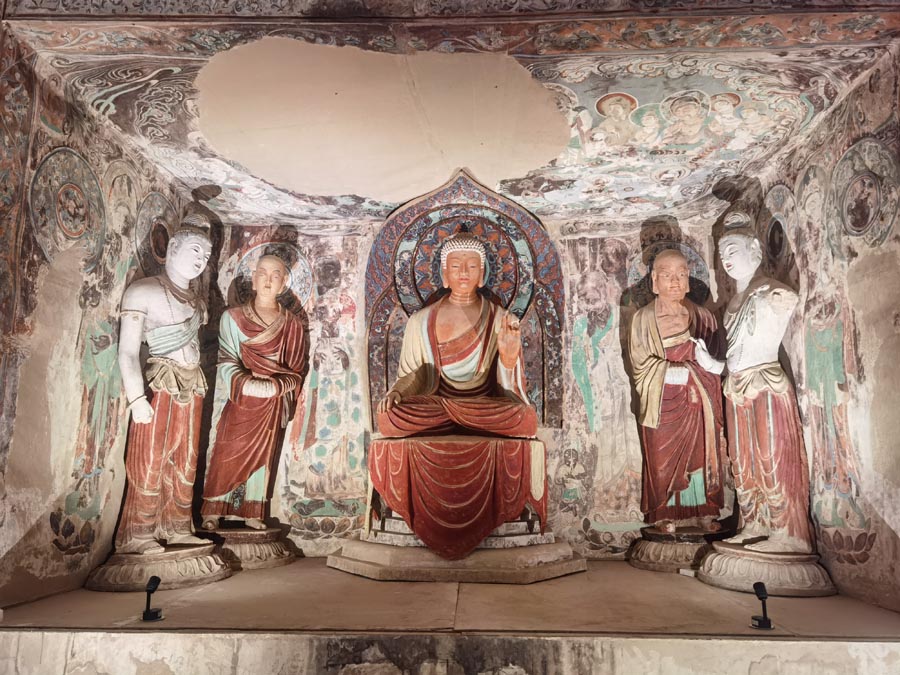Precious repositories of piety and prestige

A replica of Cave 220 of Mogao site from Tang Dynasty on display in the Palace Museum in Beijing last year. [Photo by Wang Kaihao/China Daily]
Standing in the Mogao Caves and feeling the chemistry among the different elements from various civilizations even within one image, visitors may, like Schmid, easily be captivated by those ancient times.
In Schmid's eyes, Hexi grottoes remind people to think that historical and cultural diversity is as important as biodiversity for the health of our species. "Approaching these sites allows people to explore that heritage and creativity, in everything ranging from something unassuming, such as the diversity of color palettes, to the artistry of the murals and statues, the history and ideas presented, or to the variegated interpretations of space and time," he says.
"All of them provide new ways of seeing our world and inspiration for our own creativity and imagination."
Working by candlelight, those unnamed painters in the small caves of Mogao might have wondered about who would look upon their work in the future. They would not have envisioned smartphone-toting visitors of today. But the treasure trove of art they have left behind enables us to catch glimpses of those who traveled the ancient route of the Silk Road then. Although the murals on the rock have faded, they still color people's mind.
Ma Jingna contributed to the story.





 Print
Print Mail
Mail
